Blockscout Widgets: Making Your Onchain Persona Accessible
Blockscout Widgets enhance EOA and contract pages with insights from Talent Protocol, Ethereum Follow Protocol, DeepDAO, EtherScore, and Trustblock, showing activity, risk, and ecosystem data.
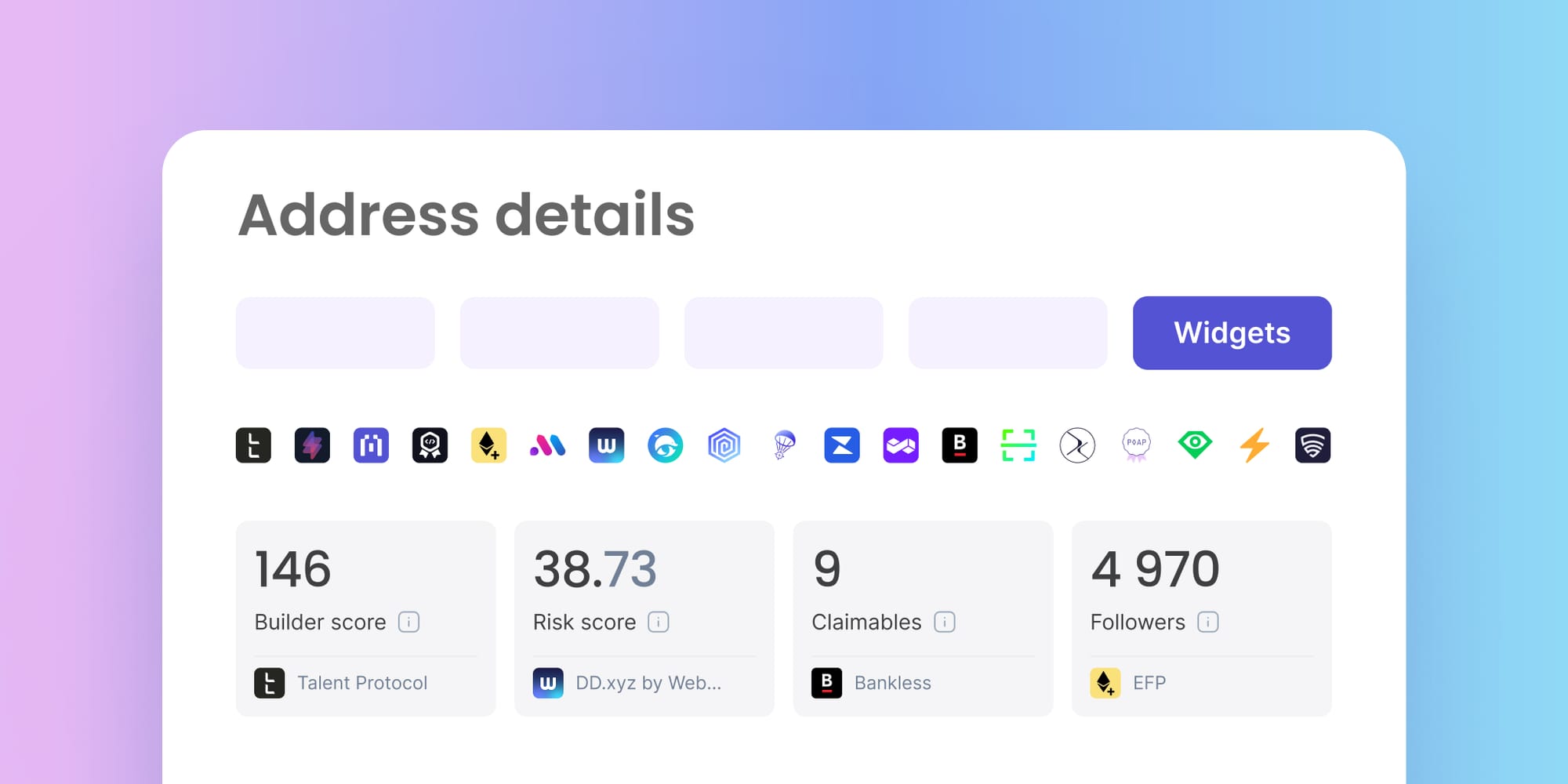
Say hello to Blockscout Widgets 👋 These compact extensions are designed to showcase essential information and provide quick access to actions for your favorite external applications. Widgets are available on a subset of hosted chains, including our Ethereum block explorer, Celo, Base, and our flagship Optimism explorer.
With Blockscout Widgets we've taken Address and Contract pages to the next level, offering a personalized experience that leverages your unique onchain identity across various protocols.
In this guide, you’ll learn how to access widgets and understand the meanings of each one.
What you can do with Blockscout Widgets
Blockscout’s widget system enhances address and contract pages with additional contextual data. Below are its major capabilities:
- Shows Engagement & Activity Across Ecosystem
Instead of just seeing balances and transactions, widgets surface how an address participates across different protocols / Dapps / Platforms. It gives a more holistic view of involvement.
- Provides Security / Risk Signals for Contracts
For contracts and tokens, widgets can display risk scores, code audit information, complexity metrics, and other analytics that help users assess trustworthiness and safety.
- Supports (and advances) Ecosystem Integrations
Blockscout already integrates with several projects/protocols via widgets, for example, Talent Protocol, Ethereum Follow Protocol, DeepDAO, and Trustblock.
How to Access Blockscout Widgets
You can view widgets on your Blockscout explorer via the Address Page or the Contract Pages. This design simplifies navigation and provides access to all relevant information for your addresses and contracts.
Widgets on Address Pages
Type your address in the search bar.
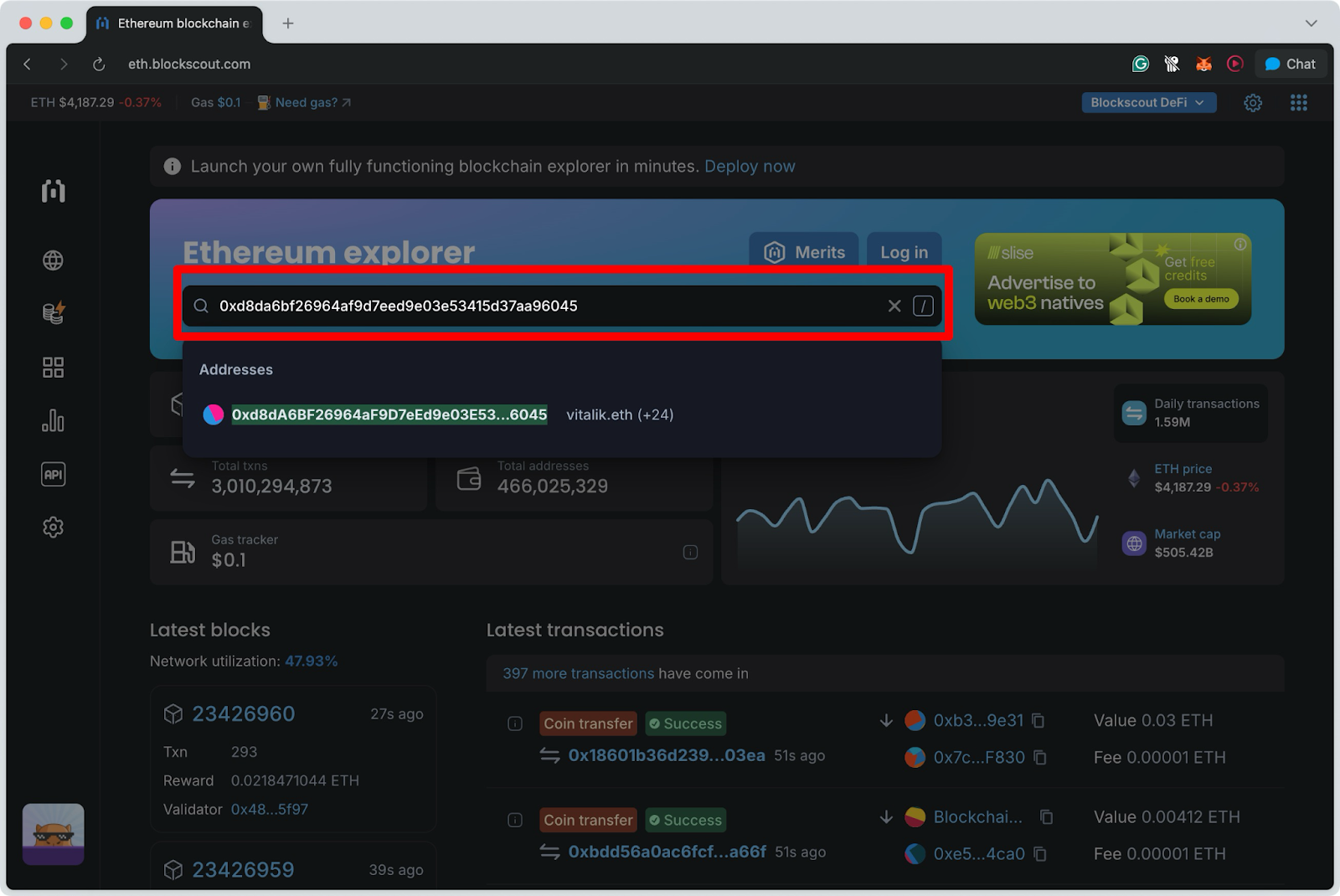
Navigate to the address page and scroll down to the widgets section.
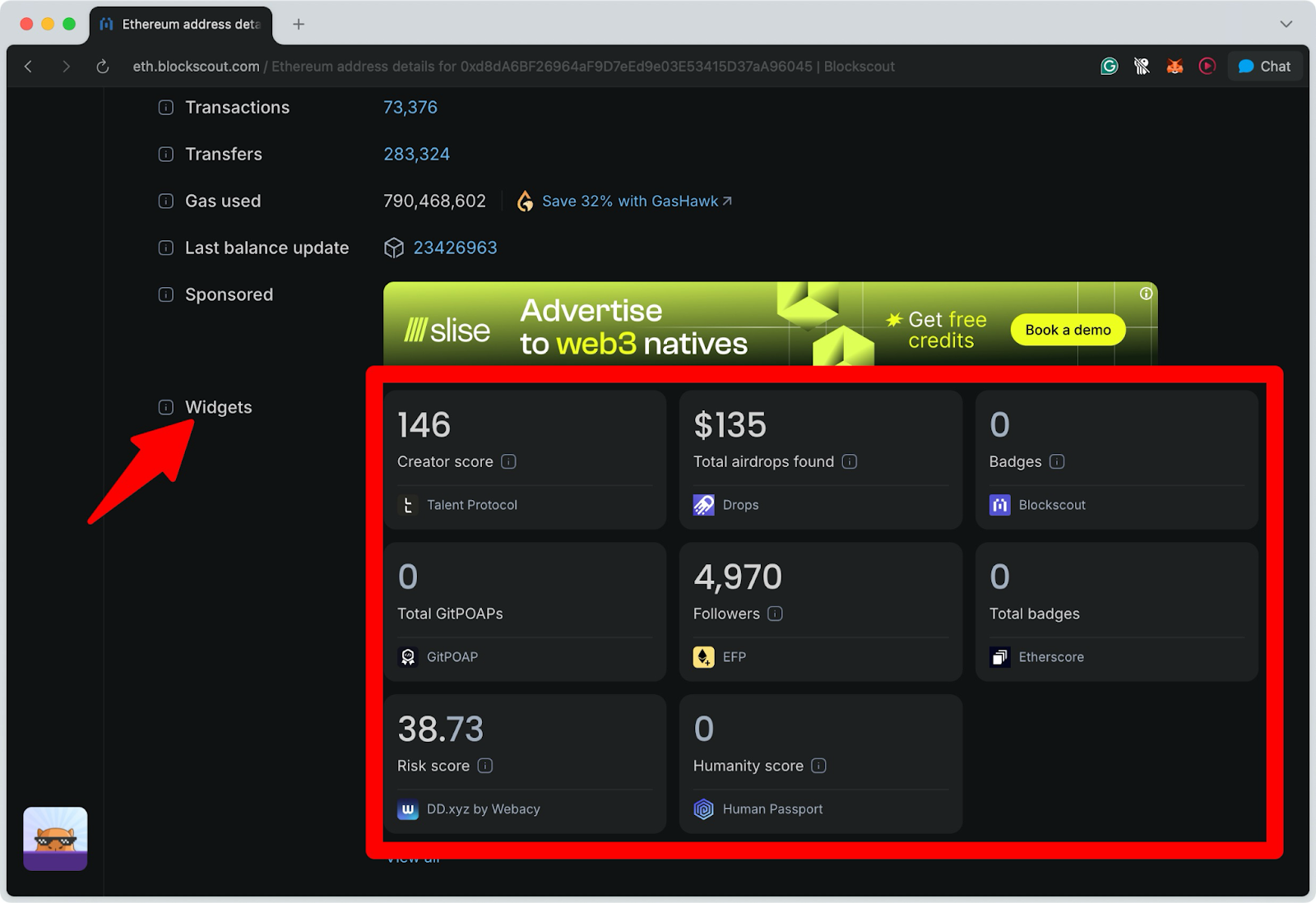
Let's delve into each one in detail below;
1. Creator Score
The Creator Score is a metric that measures a content creator's reputation by analyzing data from various platforms. Unlike traditional metrics that mainly focus on follower counts, it considers both the amount and quality of a creator's work. Using verifiable data points, the Creator Score provides a more comprehensive evaluation of a creator’s influence and trustworthiness.
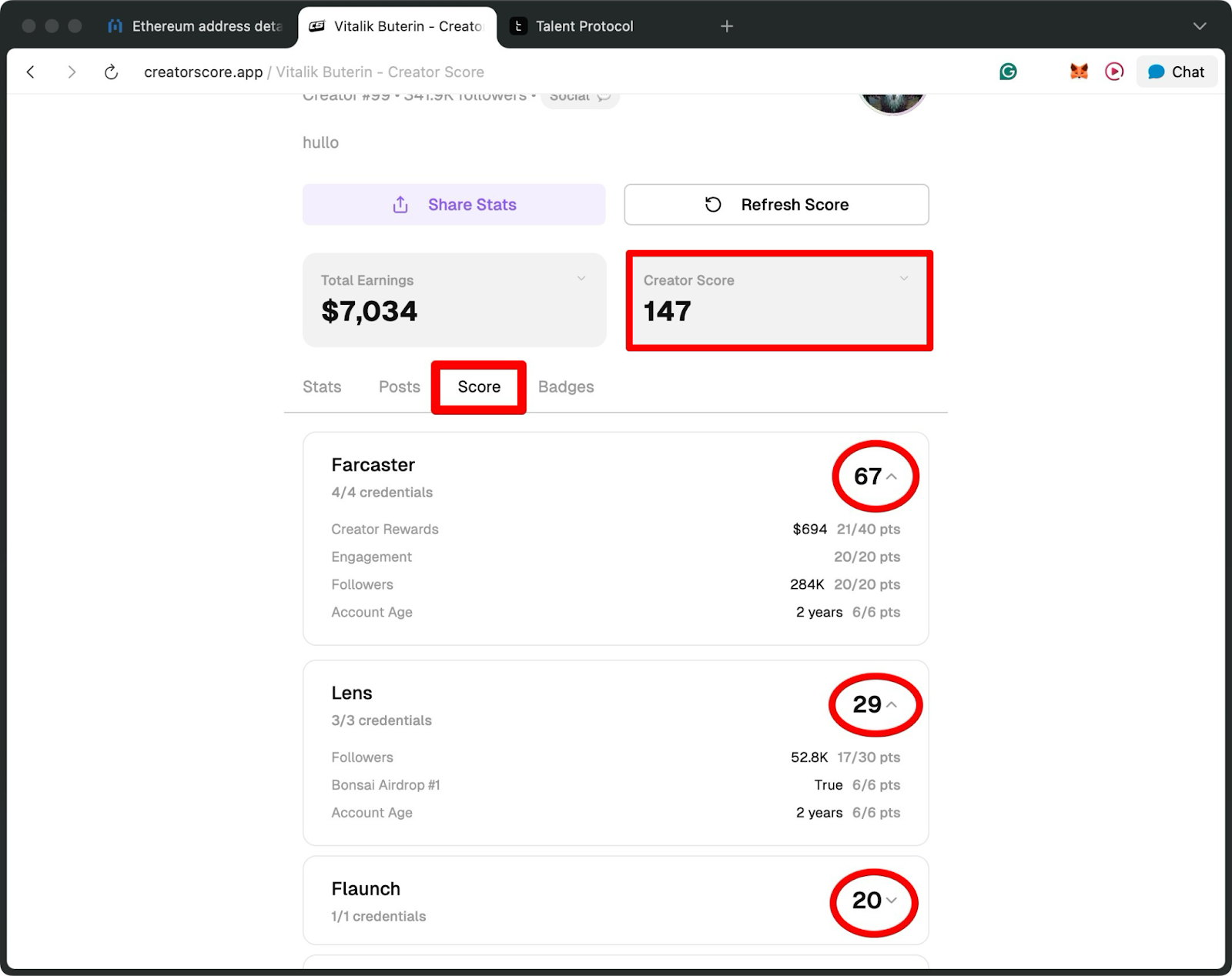
2. Drops
Drops is the most advanced airdrop checker availabl today. It automatically finds unclaimed crypto airdrops for you by monitoring wallet addresses across multiple networks. You simply enter any crypto wallet address, and it quickly checks your eligibility for all recent and verified airdrops while also providing Telegram alerts for new airdrops when one of your addresses becomes eligible.
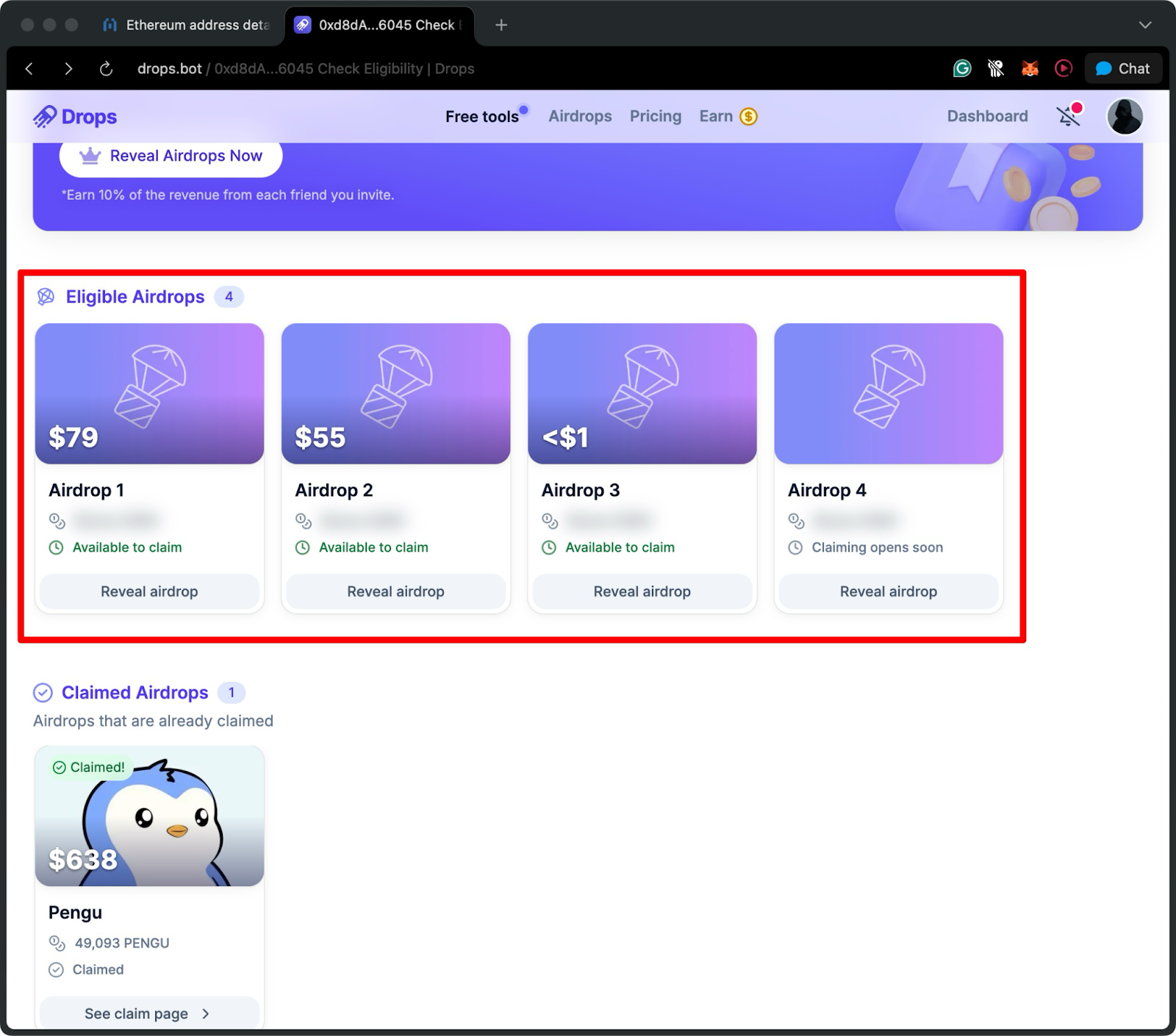
3. Blockscout Badges
Blockscout Badges are designed to celebrate and recognize our community members for their involvement in key campaigns and contributions. You can collect badges as limited-edition NFTs by completing Blockscout-related tasks.
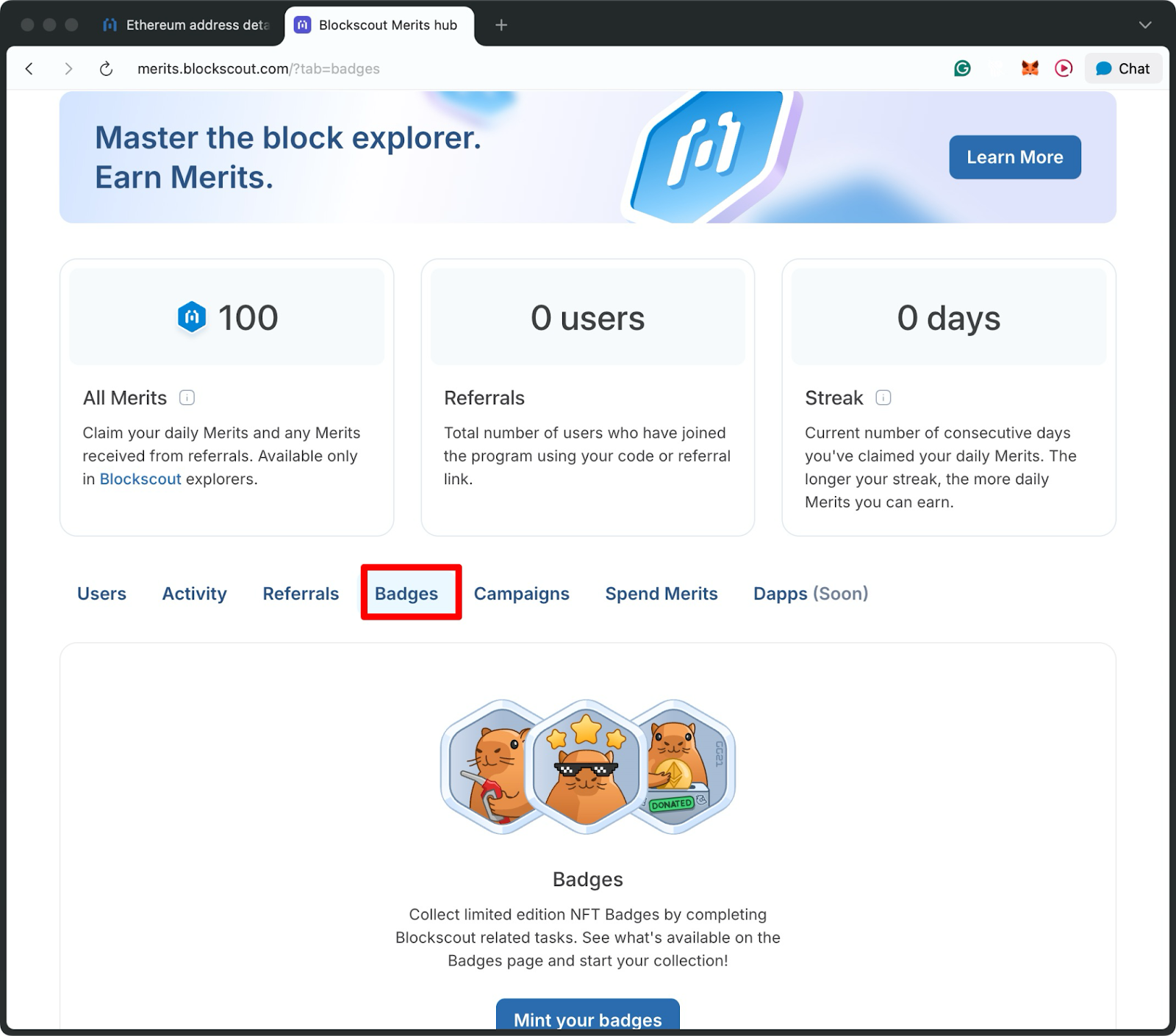
4. GitPOAP
GitPOAP is a platform built on the POAP (Proof of Attendance Protocol) model, designed to reward and permanently record contributions to open-source projects via GitHub. It addresses a significant gap in Web3 and open source: reputation. Too often, people’s contributions are hidden, disorganized, or difficult to verify. Having something public, permissionless, and onchain provides real weight.
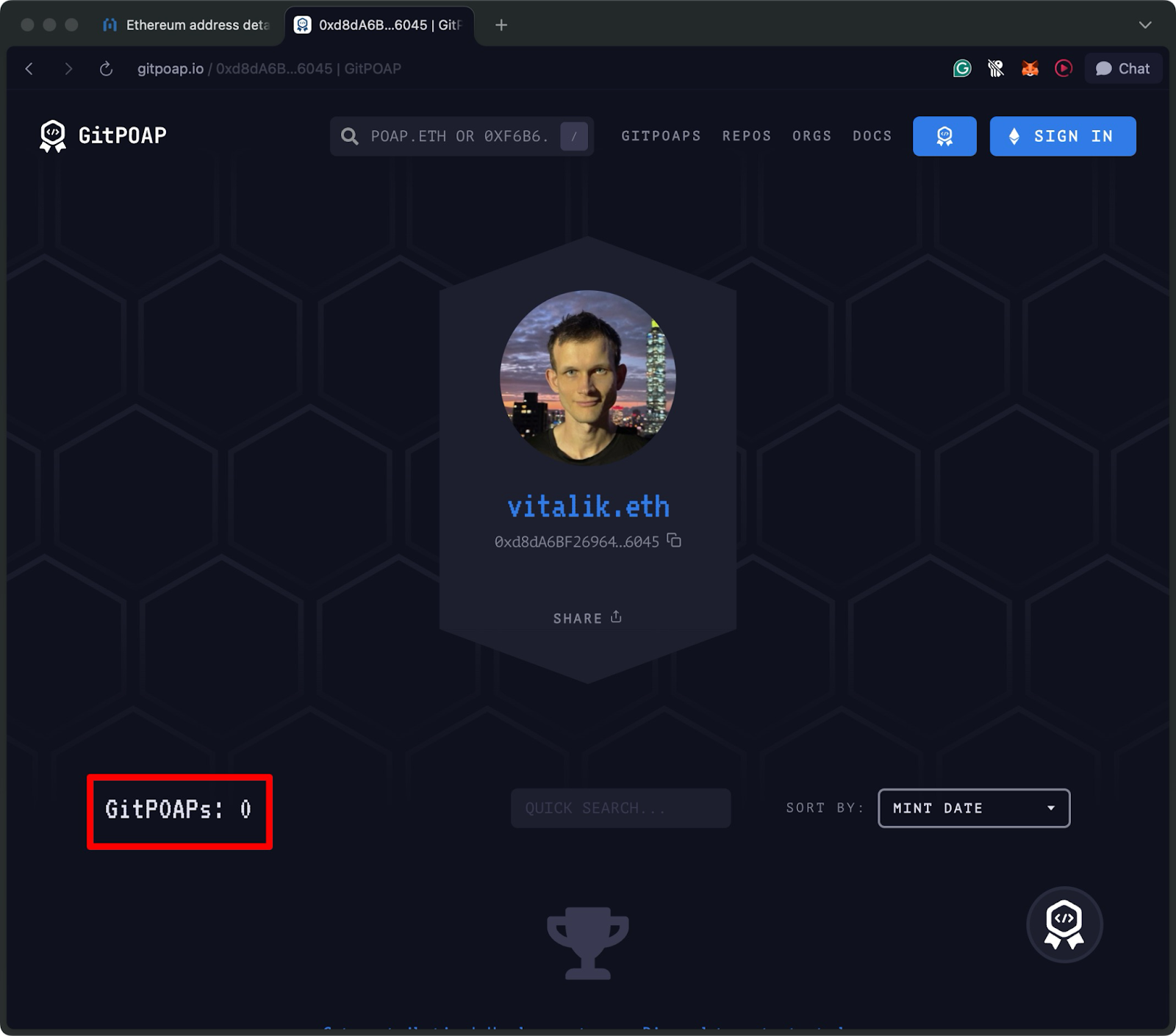
5. EFP Followers
EFP (Ethereum Follow Protocol) is an onchain social graph protocol for Ethereum accounts that complements ENS. It enables users to "follow" or "tag" other addresses through NFT lists, creating a decentralized social network on Ethereum for building social connections.
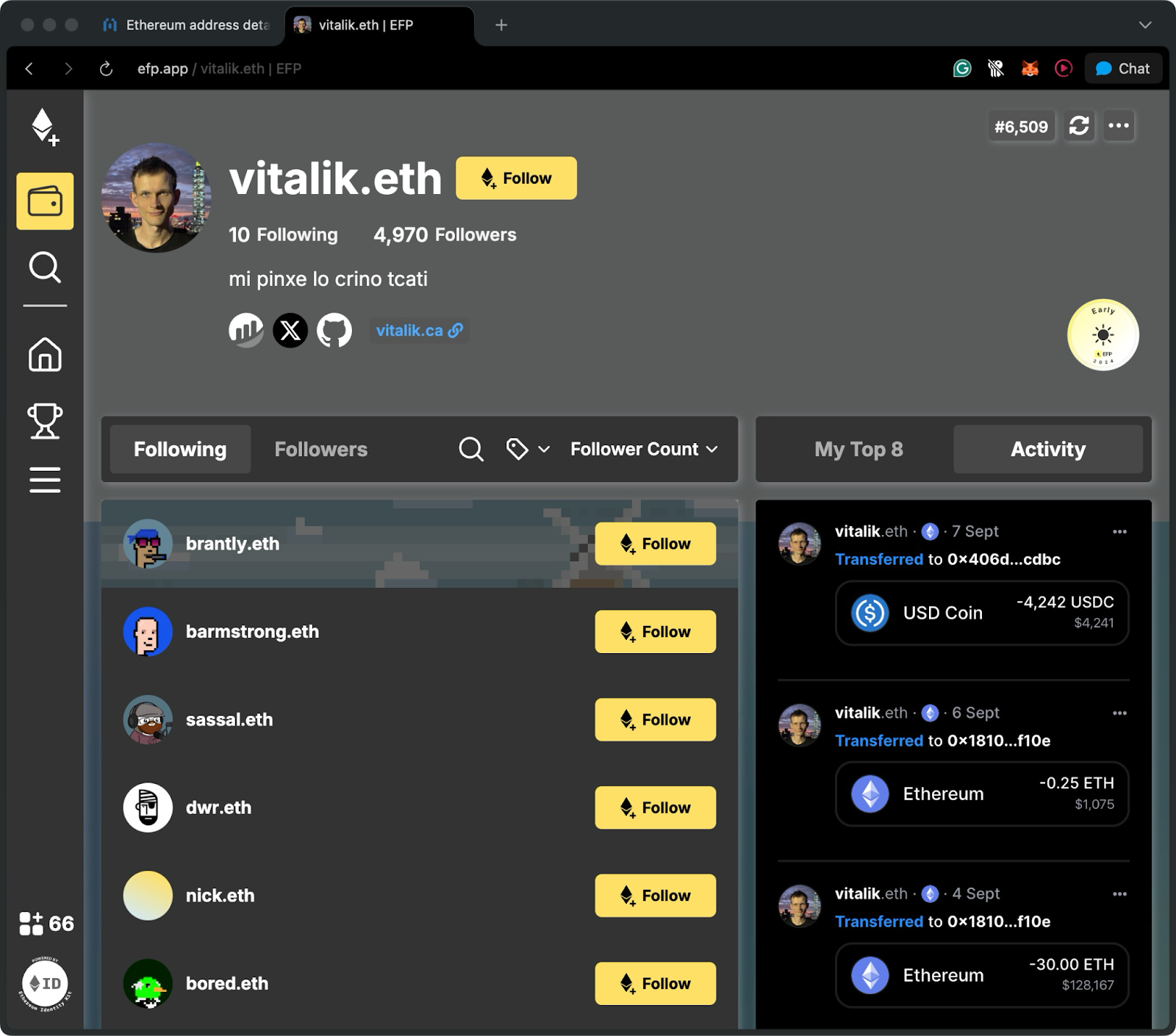
6. Total Badges
Your total badges on EtherScore are how many onchain achievements you've completed across various DeFi protocols, NFT platforms, and DAOs that qualify for their badge criteria. Each badge represents a specific milestone or activity you've accomplished in Web3.
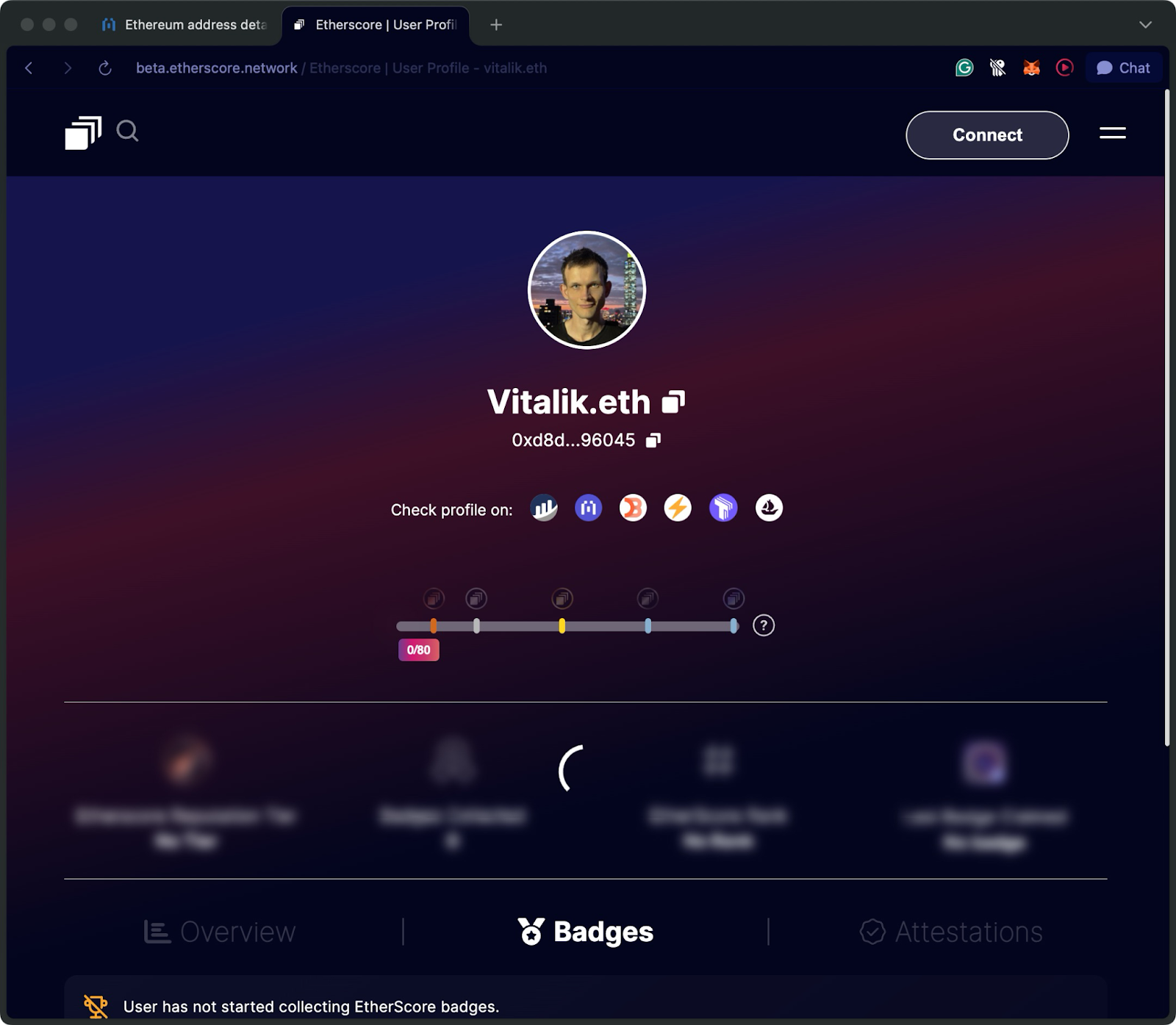
7. Risk Score
The Risk Score is a numerical assessment used to evaluate potential security threats, compliance issues, or suspicious activities associated with your wallet address. This score helps assess the overall risk associated with your wallet, providing valuable insights into its security status.
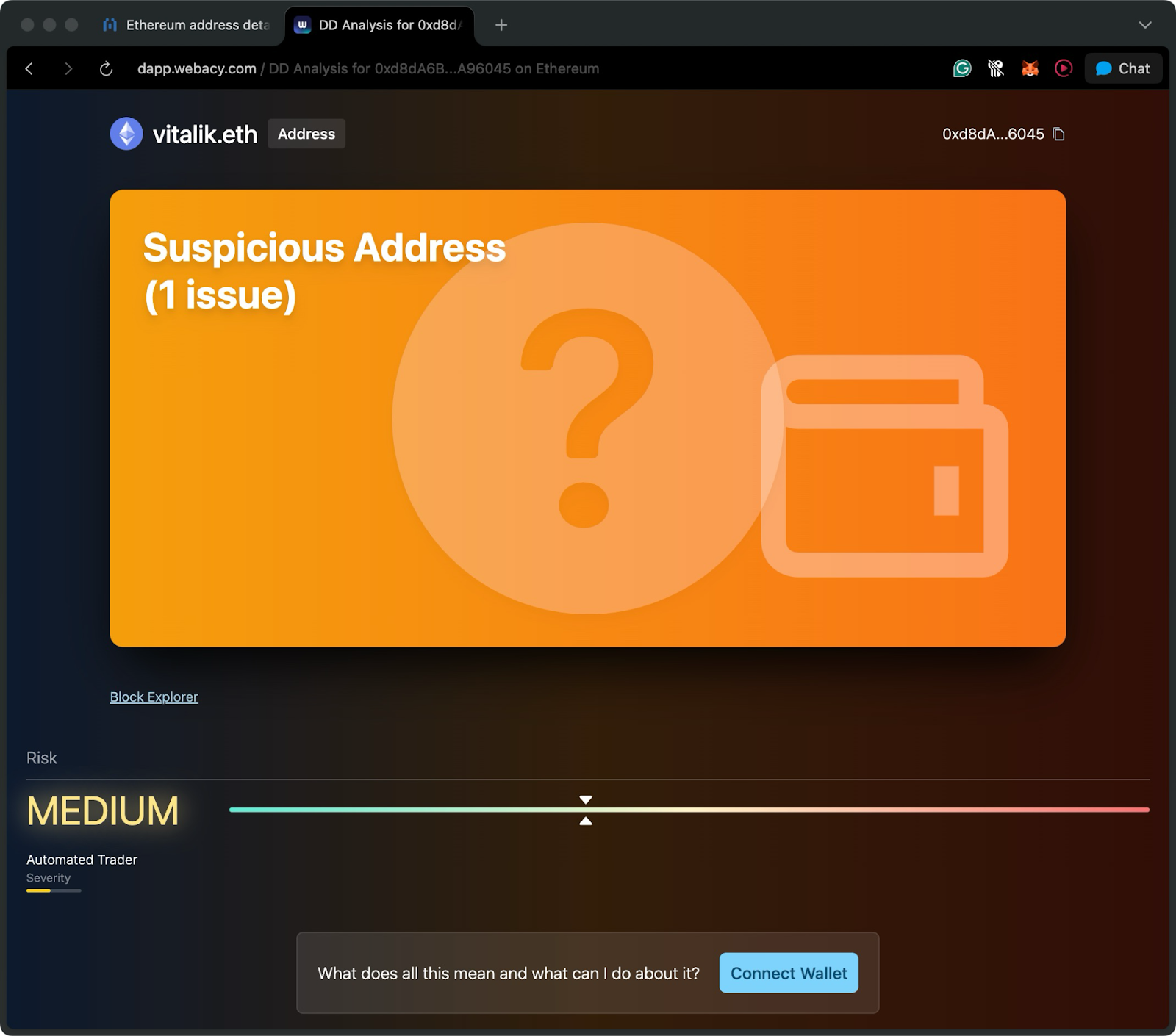
8. Humanity Score
Your Humanity Score is a unique score that utilizes verifiable credentials, called "stamps," from trusted sources across web2 and web3 to verify someone's humanity without compromising their privacy. It's essentially a proof-of-personhood system that helps distinguish real humans from bots and Sybil attacks in Web3 applications while preserving privacy.

To earn HUMN points, you need to increase your humanity score, which you can achieve by collecting stamps that serve as validated means of identification (e.g., Government ID, Biometrics, ENS domain, and so on).
Widgets on Contract Pages
Type in your Contract address, then scroll down to the widgets section.
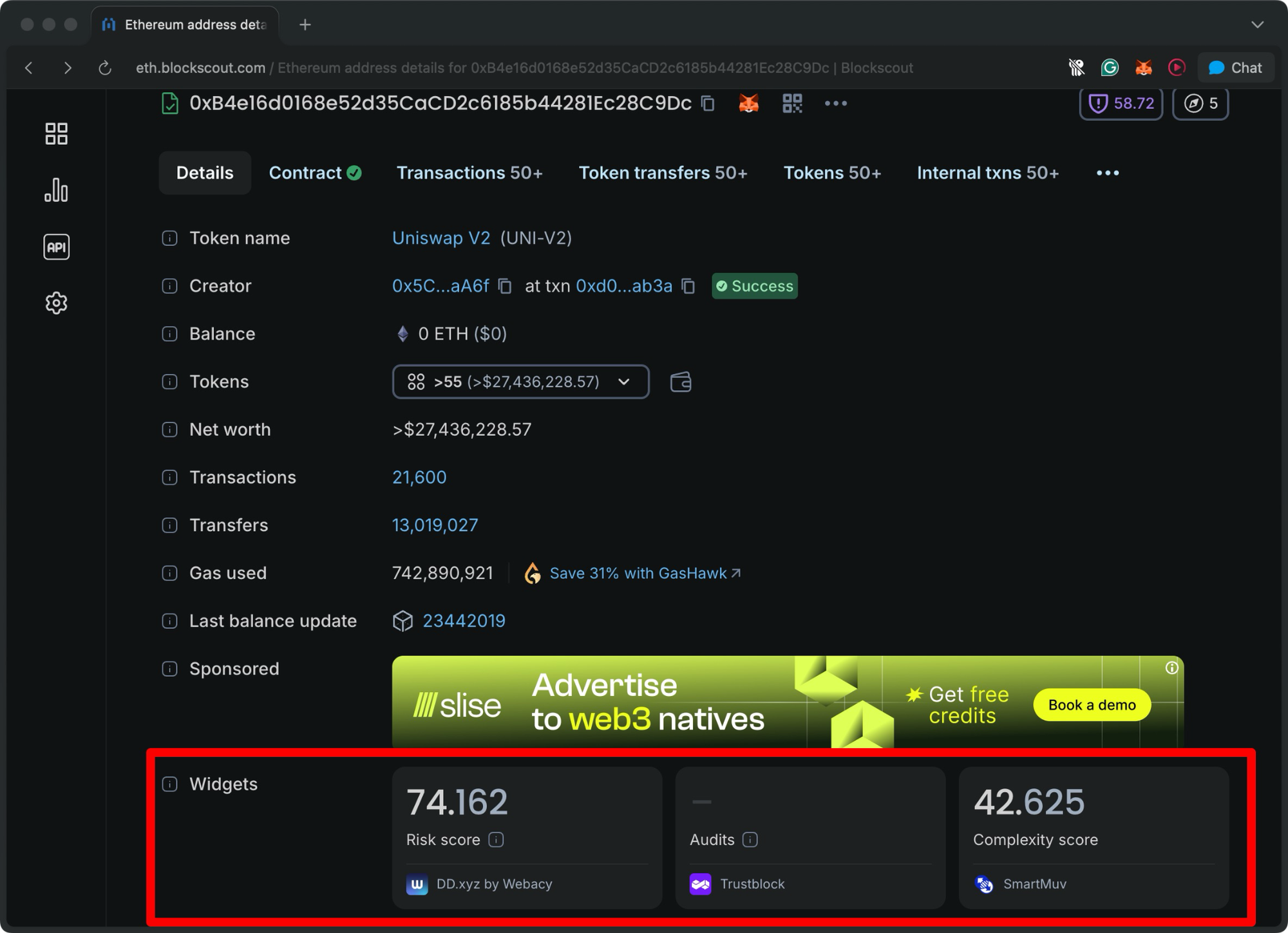
Audits
Audits is a platform that shows verified smart contracts recorded onchain through Trust Block, a web3 protocol for audit transparency. Note that auditors and audit firms must publish contracts on Trustblock for them to appear on the widget.
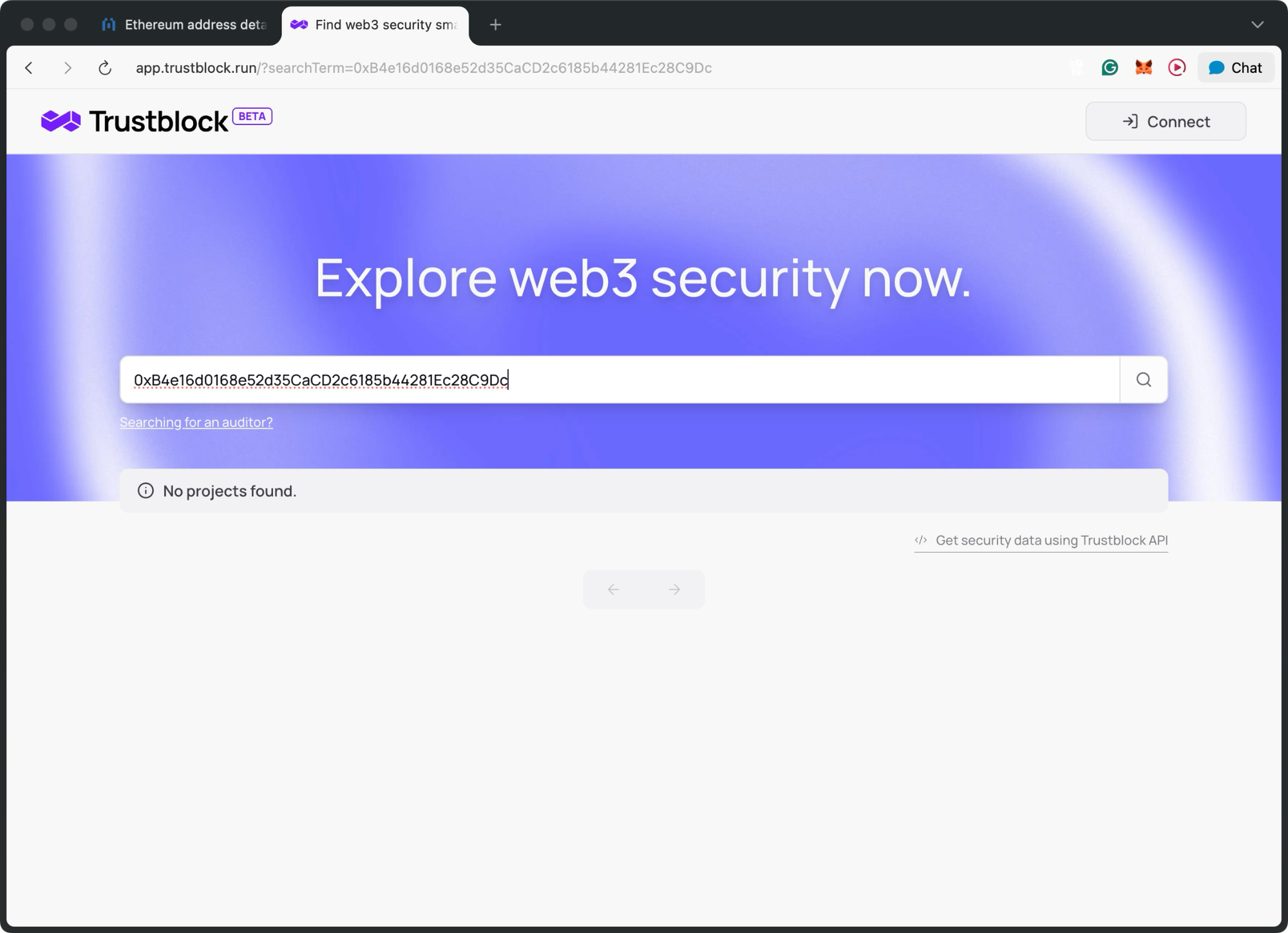
Complexity score
The complexity score is primarily intended for developers and auditors who want to understand, migrate, or upgrade smart contracts safely and securely. It evaluates the structural complexity of a smart contract's storage layout and assigns it a score.
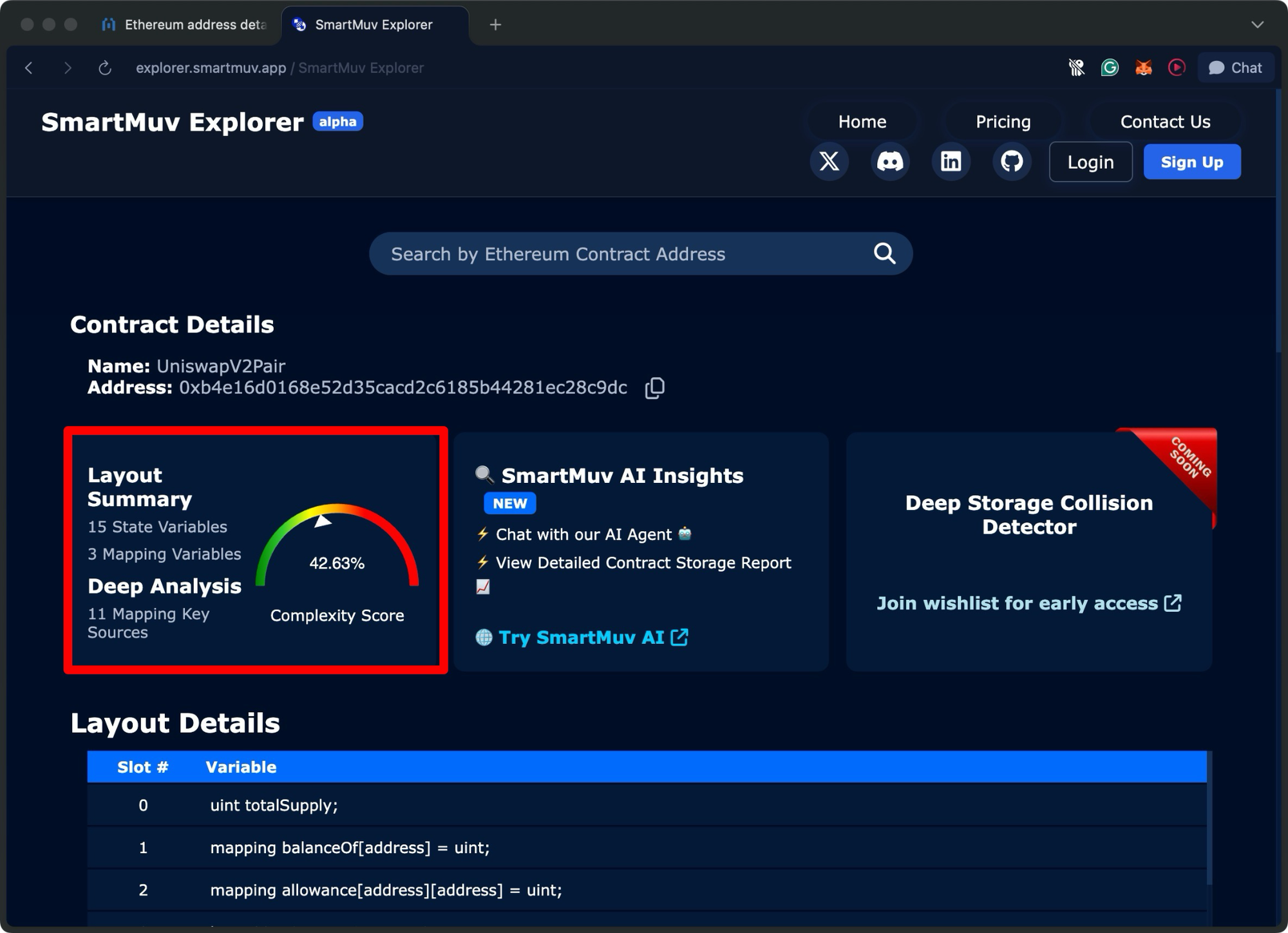
Conclusion
Blockscout Widgets add a new level of usefulness for explorers by transforming static address and contract pages into interactive dashboards of onchain identity, activity, and security. From tracking contributions and airdrops to revealing risk scores and audit details, widgets help users quickly grasp and engage with the Web3 ecosystem without leaving Blockscout.
As more integrations are introduced, these widgets will not only make blockchain data easier to explore but will also unlock a richer and more personalized onchain experiences.

